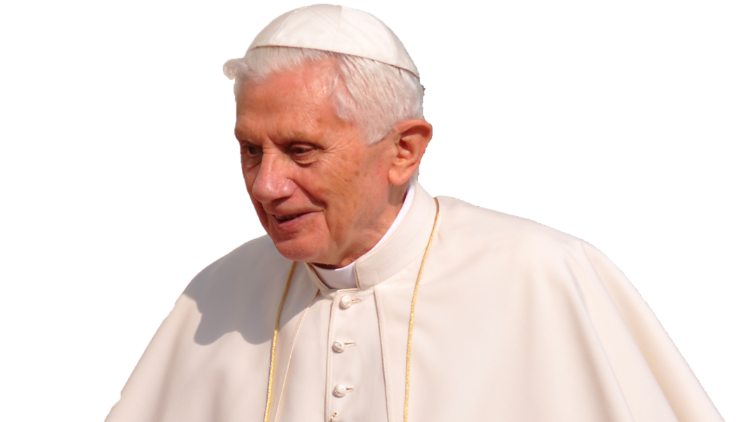This is from The Vatican Insider:
Müller, “No one has the right to indict the Pope”
The cardinal, “The attacks hurt the credibility of the Church. I am convinced that Francis is doing everything possible against abuses. The American bishops should have sent the texts to Rome earlier”
At the end of August Archbishop Carlo Maria Viganò published a dossier accusing the Pope of allegedly "covering up" for Cardinal Theodore McCarrick and going as far as to ask Francis to resign: what do you think?
"No one has the right to indict the Pope or ask him to resign! Clearly it is possible to have different opinions on the existing problems and on the ways to resolve them, but we must discuss them according to the roles of each and in the end, it is the cardinals, as representatives of the Church of Rome, who can help the Pope or ask the Pope for some explanations. But this must take place in private, in the proper places, and without ever making a public controversy with attacks that end up questioning the credibility of the Church and her mission. I am personally convinced that Pope Francis is doing everything possible to counter the phenomenon of child abuse and to foster a new spirituality for priests, who must act according to the heart of Christ and do the good of all people, especially children and young people".
Today even the terrible scandal of abuse is used for internal battles in the Church. Do you agree?
"We must all work together to overcome this crisis that is hurting the credibility of the Church. Unfortunately we have these groups, these "parties" - the so-called "progressives" and "conservatives". We are all united in the revealed faith, and not by the prejudices of political ideologies. We are not a political entity, the Church was instituted by Jesus Christ and is led by the bishops and especially by the Successor of Peter who is the permanent and fundamental principle of the unity of the Church in revealed truth and sacramental communion, in our being brothers and in trusting one another, as we read in the Council Constitution Lumen Gentium at number 18. I hope that the Pope may take some initiative for reconciliation. For example, to manage the crisis that followed the abuse scandal in the United States, he could appoint a commission of cardinals he trusts, to study the situation and then, on the basis of solid information, make some proposals, beyond oppositions, struggles between factions, mutual suspicions, and propaganda carried out by media campaigns. We need a solid base of information: only in this way decisions can be made for the future".
There is no doubt that child abuse is a crime and an abominable sin. But don't you believe that there are - within the Church - those who trust too much in best practices and norms as a solution to the problem? Isn't there a risk of forgetting that the Church is not a company?
"Canon Law is for us an instrument, a necessary aid to the Church, which like every society needs its rules. In Canon Law we have norms of divine law that we cannot change, but also norms of human, ecclesiastical law that we can change and update to better respond to the needs and circumstances to be faced. But, we, the Church, are a sacramental and spiritual reality and more important we are the dimensions of morality and faith: rules, norms, external discipline are not enough. We need spiritual renewal, prayer and penance, drawing on the grace of the sacraments, reading and meditating on the Bible, entering into the spirit of Jesus Christ. We must be priests according to the heart of Jesus, the heart of Jesus Christ on the cross, who suffered and died for the love of all sinners and every human being. The priest is an alter Christus, not because of his skill or ability, but because he gives his heart for humankind. We must bear witness to this and in so doing restore the credibility of the Church so that people may encounter faith".
In the face of the scandals of abuse, Benedict XVI and Francis insisted on the path of conversion and prayer...
"It's the most authentic way. There are procedures that have been established to combat the phenomenon, but spiritual renewal and conversion are more important. There are priests who never go to spiritual exercises, never approach the confessional, never pray the breviary. And when the spiritual life is empty, how can a priest act according to Christ? He risks becoming a "mercenary", as we read in the Gospel of John".
"According to the sacramental institution of the Church, the bishops have their responsibility, the Pope has his, but all must collaborate. We have sufficient norms in Canon Law, there is the motu proprio Sacramentorum sanctitatis tutelaof 2001, there are the already existing norms of the Congregation for the Doctrine of the Faith, yet not always all the bishops have collaborated with our department. They have not informed as it is ought to be done. First we must do what is already established and indicated as necessary and obligatory by the existing norms. And then one can collaborate, in a spirit of brotherhood and collegiality, and perhaps discuss whether the tone of the proposed text was adequate. They told me that the text arrived in Rome from the United States at the last moment: why was it not sent earlier? We must avoid confrontation and public controversy, and first discuss together to then arrive at a decision. We need to talk more before. I thought it was necessary for the presidency of the American Bishops' Conference to first consult with our experts at the Congregation for the Doctrine of the Faith. The Holy Father is a single person, he cannot deal with everything. That is why there are the departments of the Roman Curia, to collaborate and arrive at a well-developed proposal to bring to the Pope".
Today there are those who insist on saying that the problem of abuse is in reality linked to the problem of homosexuality of the clergy. What is your opinion on this issue?
"Pedophilia and homosexuality are expressions of psychology that help the Church in her moral theology. But for us, the dimension remains the moral one: that is whether we act according to the Commandments, according to the holy will of God, or not. This is the problem for us. We must collaborate with psychology and sociology, but we in the Church at the level of the Magisterium must not put these disciplines in the foreground. Instead we must base ourselves on moral theology. It is clear that according to God's will, it is not possible for the lay faithful to have sex outside of marriage, and for a priest - who has committed himself to celibacy - it is not possible to have sex. Nor is it possible for anyone to sexually abuse children or young people. Child abuse is an abominable sin that steals the souls of the children entrusted to our care, it is something diabolical! We must raise the moral level of the clergy. As for your question: we cannot speak of "homosexuals". There are no "homosexuals" as a category. There are concrete people who have certain tendencies, and there are temptations. Our hearts are wounded by the original sin and we must overcome temptations with grace, the new life in Jesus Christ. Always calling sin a sin and recognizing it as such, so as not to fall into the corruption of those who sin and self-justify themselves".
Pope Francis speaks of abuse of power and clericalism to indicate that before being sexual abuse, namely clerics' abuse of children (and vulnerable adults), it is an abuse by those who exercise authority over the victim. For this reason it can be said - for example - that McCarrick did not simply have homosexual relations with his seminarians, but abused them.
"I believe that the Pope would like to underline the fact that in the sexual abuse against children committed by priests there is always an abuse of the natural and spiritual authority of the priest. The clergy man is a representative of Jesus the Good Shepherd, children and young people trust him and he exercises paternity over them. Sexual abuse begins with an abuse of authority and conscience. This, I believe, is what the Holy Father meant. If one has a secularized heart, for him power, interest, luxury, money, pleasure become idols. The priest must not become worldly: our time, our being, is for the people, for the people of God.
Pope Francis insists on warning against clericalism...
"I don't like this word because it's ambivalent, but as I said, here we mean the abuse of office powers by the priest. Who stops being a good shepherd according to the heart of Jesus and turns into a mercenary. These are the words of the Bible".
Your Eminence, how do you judge the polarization and the emphasis with which certain groups and certain media exploit certain wrong appointments, perhaps with significant omissis depending on the group to which they belong?
"We have very clear examples in the Bible: Jesus himself called the twelve apostles and one of them was a traitor, Judas. Even today it is possible that the Pope may appoint a person who is "false", who is not suitable for the role, for the episcopate. Jesus Christ himself, even though he knew everything thanks to his divine intellect, left freedom to the traitor Judas. Everyone is then responsible for their sin: we can, through the process of selection with the Congregations, through all our human judgments, do everything possible to elect a good candidate. But the Pope is not responsible for what these bishops then do, as the bishops are not responsible for everything their priests do. Everyone is personally responsible for the evil they commit".
How, then, can the process of selecting bishops be improved?
"For us men it is not possible to formulate an absolute, perfect judgment: we do it according to our limited possibilities, according to what we are given to know. One must look for suitable candidates for the episcopate, but the Pope is not infallible in the nomination. And even in the future we will not be able to avoid errors altogether. We must learn from mistakes, try to make less and less of them, try to make the selection work better and better. But we are men, and as such we are sinners and fallible. We all need God's mercy and forgiveness, we must all recognize ourselves as sinners. We do not need those who stand as judges or avengers and consider themselves just. I am convinced that a significant step would be to promote greater collaboration between the various departments of the Roman Curia for the good of the Church. The individual departments all already refer to the Pope, but horizontal collaboration should be strengthened".














